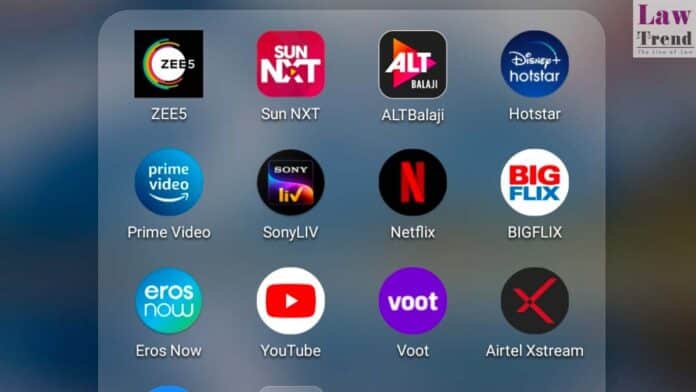The Supreme Court on Friday rejected a Public Interest Litigation (PIL) that called for the establishment of an autonomous body to oversee and regulate content on over-the-top (OTT) platforms and other digital streaming services in India. The bench, led by Chief Justice D.Y. Chandrachud, along with Justices J.B. Pardiwala and Manoj Misra, ruled that the matter pertains to policy decisions best left to the discretion of the executive.
Chief Justice Chandrachud emphasized the court’s stance on the nature of PILs, pointing out that such petitions often veer into policy areas, overshadowing more urgent public interest issues. “This is the problem of PILs. They are all on policy (matters) now and we miss out genuine PILs,” he remarked.
The petitioner, lawyer Shashank Shekhar Jha, attempted to argue for the necessity of such a regulatory body by citing examples like the Netflix series “IC 814: The Kandahar Hijack,” which claimed to portray real-life events. The PIL highlighted a gap in the regulatory framework, pointing out that unlike films that are subjected to scrutiny by the Central Board of Film Certification (CBFC) under the Cinematograph Act, OTT platforms operate under self-regulation. This lack of stringent oversight, according to the PIL, allows for the unchecked broadcast of controversial content, potentially abusing the right to expression under Article 19 of the Constitution.
Despite these arguments, the Supreme Court declined the petition, stating, “No. Dismissed,” and denied the petitioner the option to withdraw the PIL to approach the union ministry concerned with these grievances directly. This decision reaffirms the judiciary’s position that regulatory concerns of digital content are a matter of policy, requiring extensive consultations with various stakeholders rather than judicial intervention.
The ruling has significant implications for over 40 OTT and video streaming platforms that offer a range of paid, ad-inclusive, and free content across India. It highlights the ongoing debate over the balance between creative freedom and the need for content regulation in the digital age.




